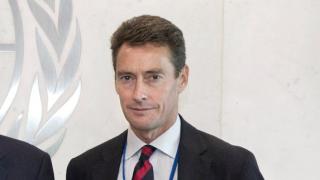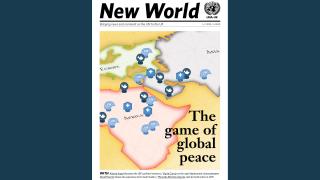
Perceived as one of the worst conflicts in Latin America, the civil war between the Shining Path guerrilla group and the Peruvian Government took 70,000 lives and left the country’s indigenous population devastated.
As with the conflicts in the former Yugoslavia and Rwanda, Peru stands out due to its widespread and calculated use of sexual violence to terrorise the local population. Predominantly but not exclusively perpetrated by the military forces, this violence ranged from rape to the forced sterilisation of women.
One long-term effect of this has been the significant rise in incidents of physical and sexual violence perpetrated against women by an intimate partner in peacetime. Peru reported 95,749 cases of domestic violence and 120 femicides in 2009 alone. Approximately 47 per cent of rural women are likely to experience sexual violence perpetrated by an intimate partner in their lifetime and 69 per cent experience non-sexual physical violence. Consequently, years after the conflict ended, women are still experiencing high levels of insecurity, to the point where Peru has one of the highest levels of violence against women in the world.
Domestic violence increases in post-conflict situations for a number of reasons. The most prominent being the reintegration of combatants into civilian society, exacerbated by the unemployment and poverty that often follows. Contrary to popular belief, sexual violence during warfare is not the biggest killer of women affected by conflict.
Most women die of indirect causes of war in its aftermath due to their vulnerable and undervalued positions in society, such as being a refugee or the sole carer for family members. Women face a higher risk of malnutrition and contracting infectious diseases than men. They also especially suffer from sexual violence and related reproductive health issues. Physical trauma, complications from pregnancies and childbirth become major killers in post-conflict societies lacking basic services.
Through legislation the Peruvian Government has tried to eradicate lingering post-conflict violence for the last 20 years. Most notable of their initiatives has been the creation of an independent court to prosecute allegations of violence against women perpetrated both by the armed forces and within society at large. However, few cases are processed and even fewer have led to conviction.
One major obstacle is that the legal framework protects the family unit instead of a woman’s individual security, defining sexual violence primarily as a violation of family honour. Whilst it might be conflict that created elevated levels of violence against women, it is arguably Peruvian society’s discriminatory social norms around gender that reproduces and accepts this violence in peacetime.
The UN and international community have long recognised the dangers women face, and have implemented mechanisms to ensure their peace and security of women in and after warfare. UN Security Council Resolution 1325 is seen as a landmark document, but has been criticised for not being effective enough. Including women in peacebuilding efforts at the highest levels will not suffice when their safety on the ground cannot be guaranteed. And in the case of Peru it is evident that we cannot change deep-rooted issues with superficial measures. This is not to say that the UN has not recognised this. Several Security Council resolutions (see 1820, 1888 and 1889) have acknowledged that targeting societal inequalities is a route to lasting peace.
Changing perceptions takes time. It is equally important to emphasise security for women and girls on the ground both during and after conflict now. That means ensuring immediate personal safety and freedom from violence in unison with long-term targets to eradicate gender inequality. Without addressing the gendered aspect of human security, especially sexual violence in the domestic sphere, it will become impossible to fully create sustainable peace and development for all.
Katharina Jens is the current Outreach Intern at UNA-UK.
























